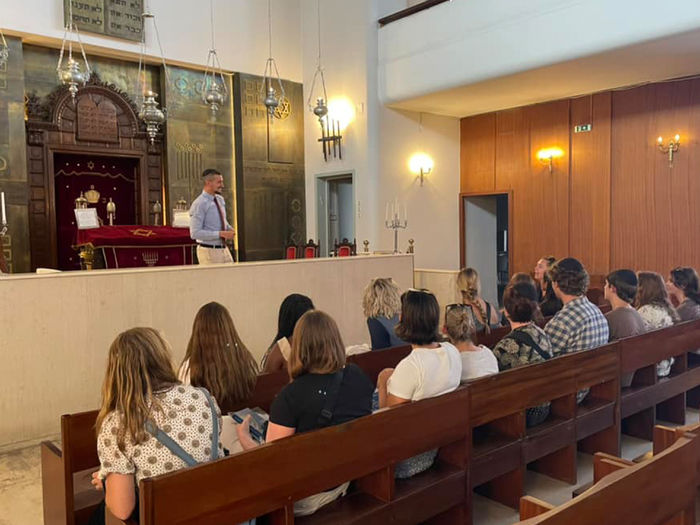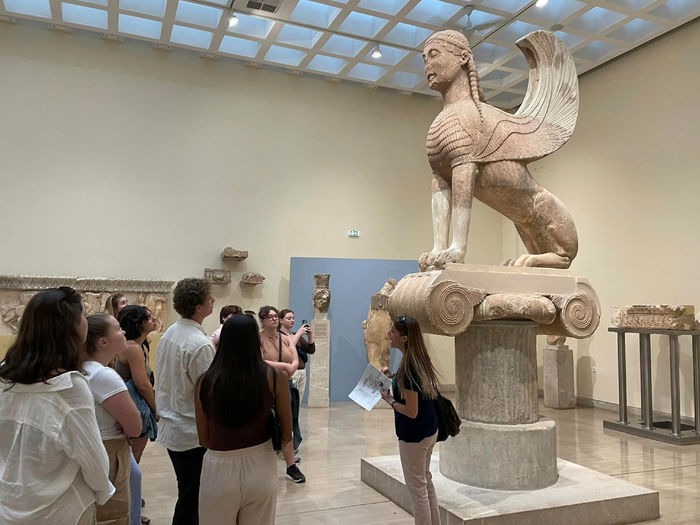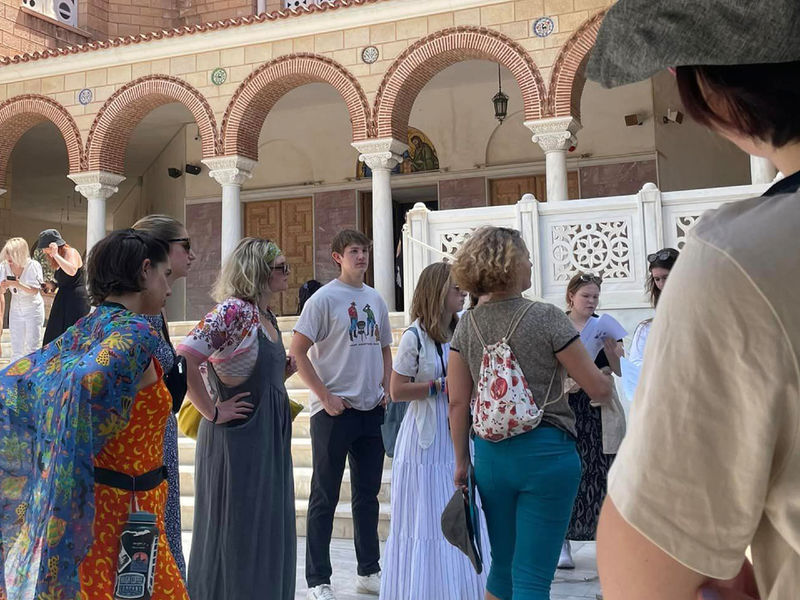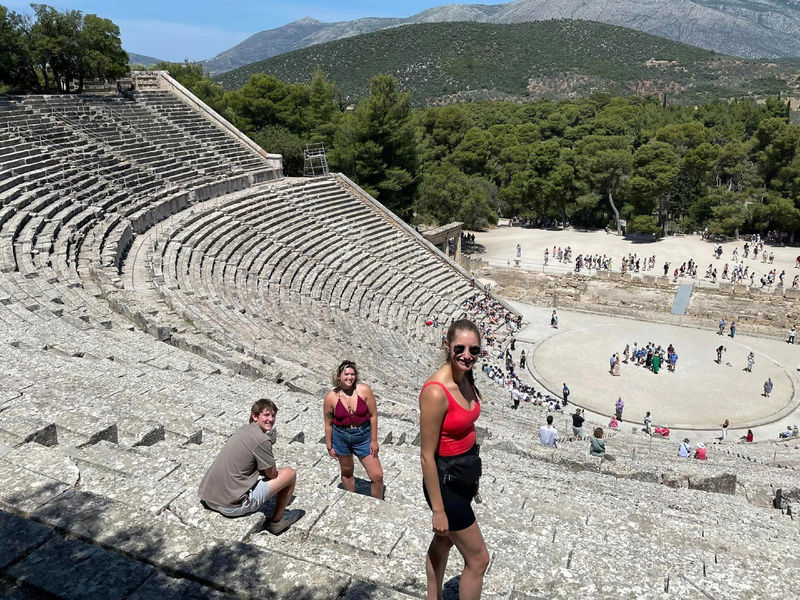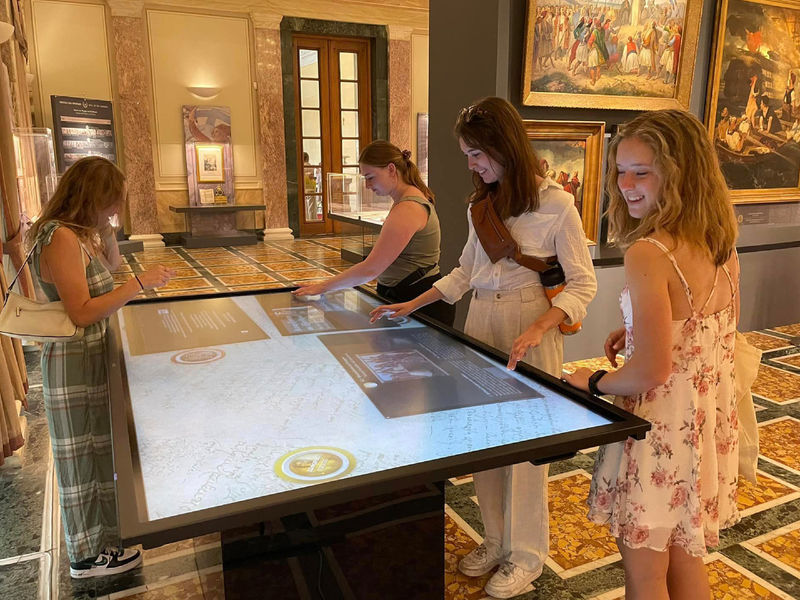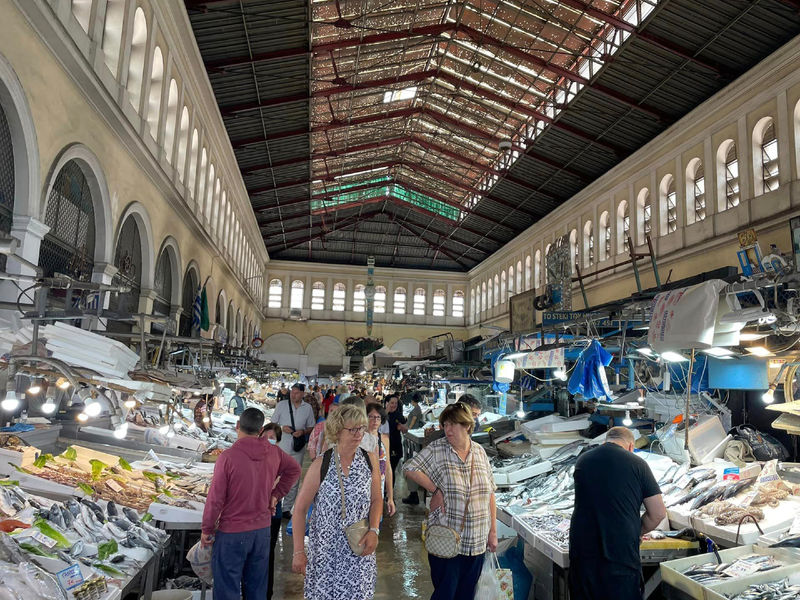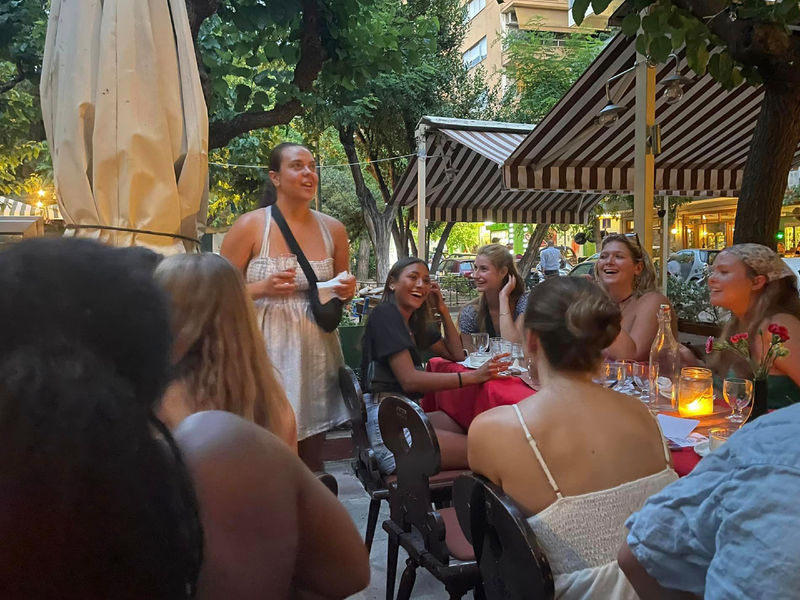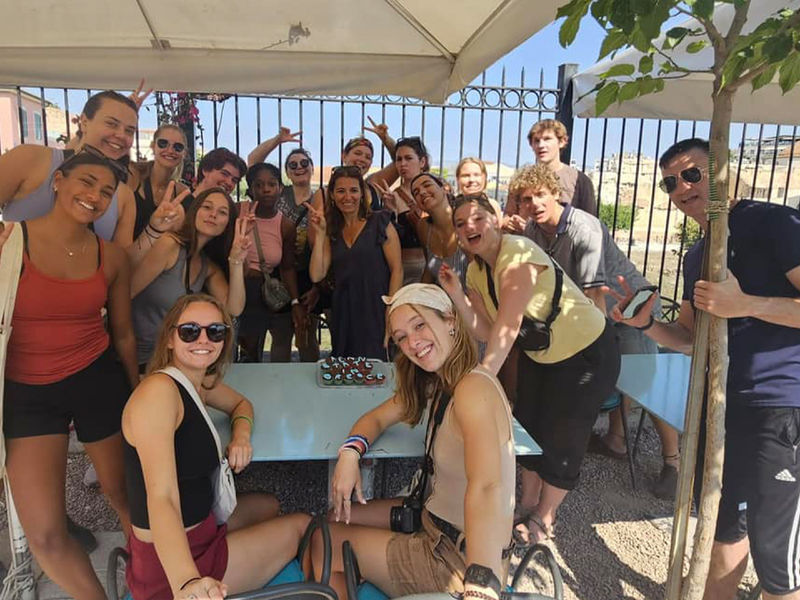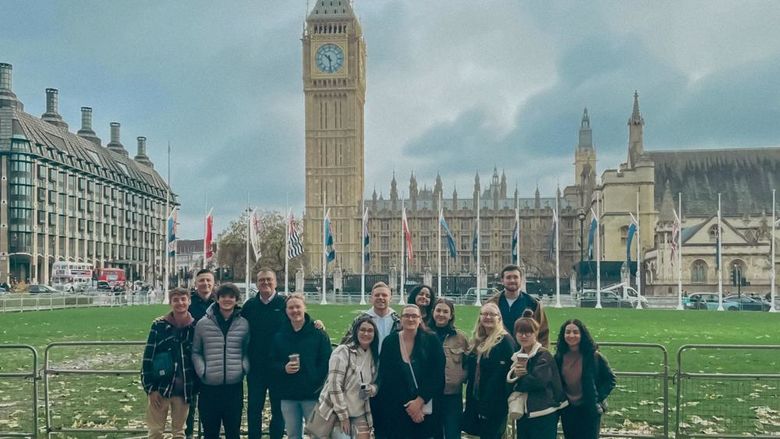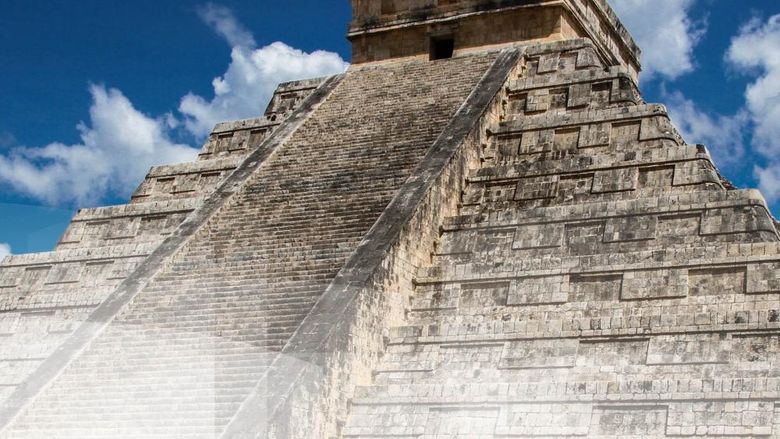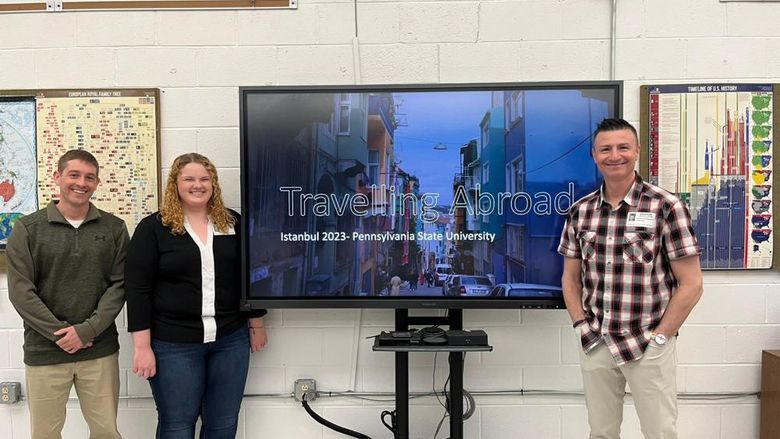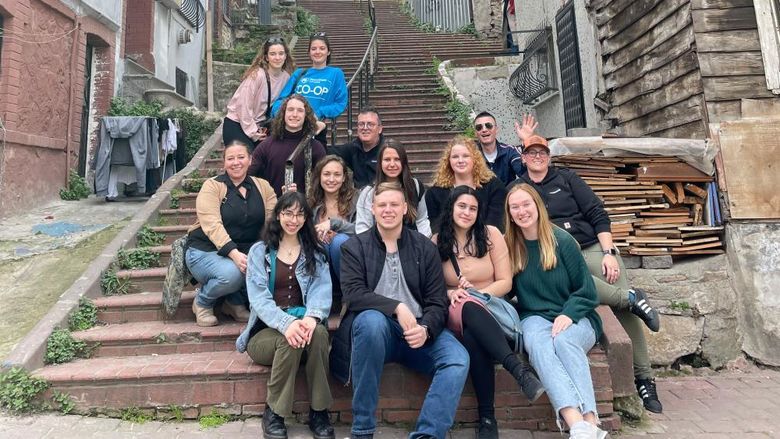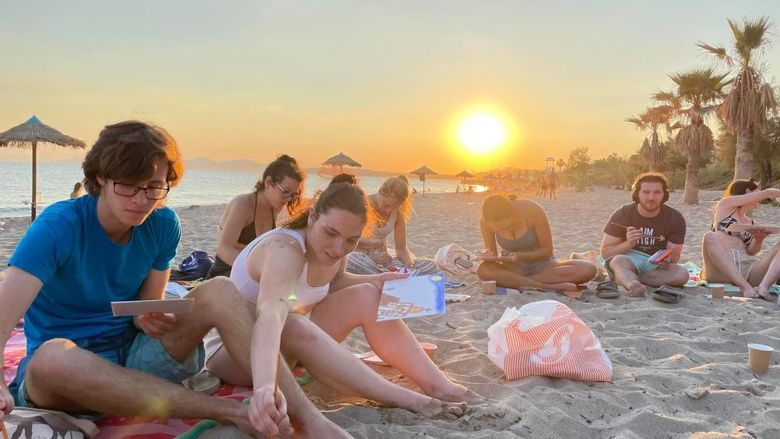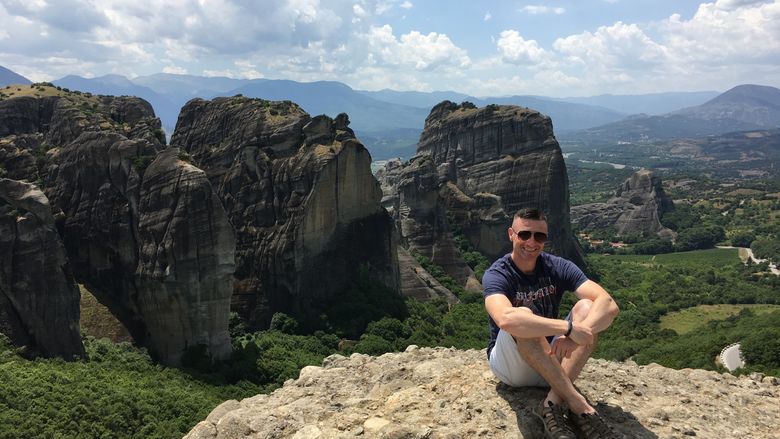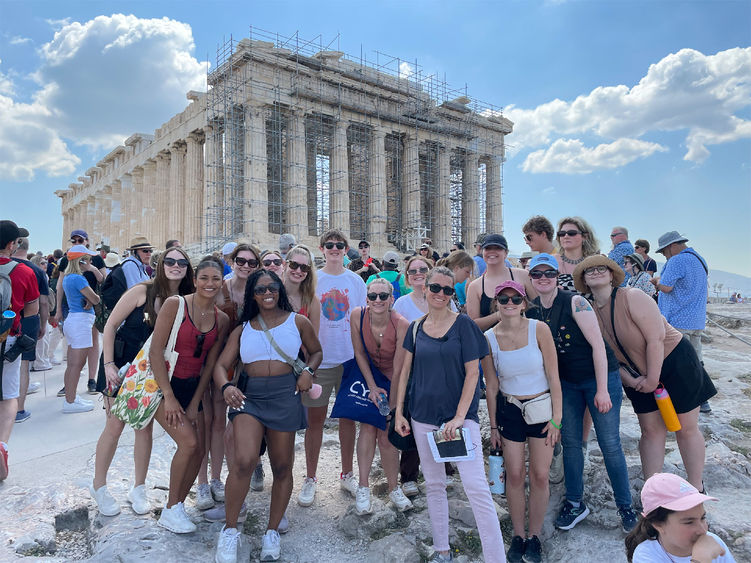
Students from Penn State pose in front of the Parthenon during their study abroad program in Athens, Greece.
LEMONT FURNACE, Pa. — This summer, Aris Karagiorgakis, associate teaching professor of psychology at Penn State Fayette, The Eberly Campus, led 16 students on a unique six-week study-abroad experience in Athens, Greece.
The immersive program, open to all Penn State students, featured two concurrent courses: PSYCH 230: Psychology of Religion and PSYCH 232: Cross-Cultural Psychology.
The students explored key Greek sites to gain insight into the evolution of religion. The itinerary included visits to the Acropolis, the Oracle at Delphi and the Temples of Poseidon, along with an examination of ancient Doric ruins on the island of Aegina. The group also explored the Temple of Aphaia, Monastery Hosios Loukas, Epidaurus with its renowned ancient theatre, and the monasteries perched atop the towering rock pillars of Meteora.
In their exploration of modern Greek culture, the group delved into the ways in which religious and cultural contexts shape human behavior. Through hands-on experience and engaging dialogue, they examined the psychological underpinnings of how religion and culture influence and mold thoughts, feelings and daily actions.
Exploring religion and culture
“This challenged our view of the psychology of religion by asking us to look at religion as a whole,” said Liz Gibbs, a third-year psychology major from West Simsbury, Connecticut. “Through visiting various religious sites, both ancient and modern, we saw a pattern among religions that we could not have simply learned from a textbook.”
This was Gibbs’ first time studying abroad, and she said being in Greece enhanced her learning experience. She said she observed a stark contrast between Greece's more collectivist culture and the individualistic focus common in the United States.
“We got to witness this firsthand in Athens through living in a community and seeing each day what people chose to do was often based out of a group identity than an individual one,” Gibbs said.
“This challenged our view of the psychology of religion by asking us to look at religion as a whole. Through visiting various religious sites, both ancient and modern, we saw a pattern among religions that we could not have simply learned from a textbook.”—Liz Gibbs , Third-year psychology major
Ashton Swift, a third-year psychology major from Flagstaff, Arizona, believes his understanding of the psychology of religion was deepened through the experience.
“We were able to study a real example of early religion and spot similarities between the early Greeks and our modern religious systems,” Swift said. “Learning about the psychology of religion in this environment provided a richness to the experience that I would not have gotten out of class in a traditional classroom.”
In addition to their course work and cultural exploration, students found time for less formal yet enriching experiences that showcased the beauty of Greece.
“We planned a ferry ride to sit on the coast of Paros and had dinner watching the sunset," Swift said. "It will forever be a highlight of the trip to me. We spent time as a group enjoying the incredible views and food that Greece had to offer."
An unparalleled learning experience
Reflecting on the six-week study abroad, Karagiorgakis emphasized the unparalleled educational and developmental benefits of immersive learning experiences.
“The students were amazing," Karagiorgakis said. "I was energized by their enthusiasm for learning, courage to travel to a foreign country with strangers and their trust in me. It’s humbling, and I take the responsibility very seriously. While the traditional class experience is effective, it cannot duplicate what a student learns from an immersive travel experience or replicate the impact this has on a students’ growth and development.”
Karagiorgakis argues that there’s an irreplaceable value to experiential learning and underscored the unique learning experiences enabled by visiting ancient religious sites.
“Visiting these ancient temples firsthand and learning about them while staring at structures with your own eyes has a different impact than anything a student can get in a classroom,” he said. “Study abroad programs have a way of integrating experiential learning with a global perspective in ways that traditional classes are not expected to.”
Study Abroad Opportunity in London
Karagiorgakis encourages students to apply for an upcoming study abroad experience in London. There, students will learn how the English criminal justice system affected the development of the United States’ while visiting locations such as the Tower of London, Clink Prison Museum, Scotland Yard and more.
Applications are open now, and registration closes on Sept. 15. Interested students may apply at fayette.psu.edu/london.
